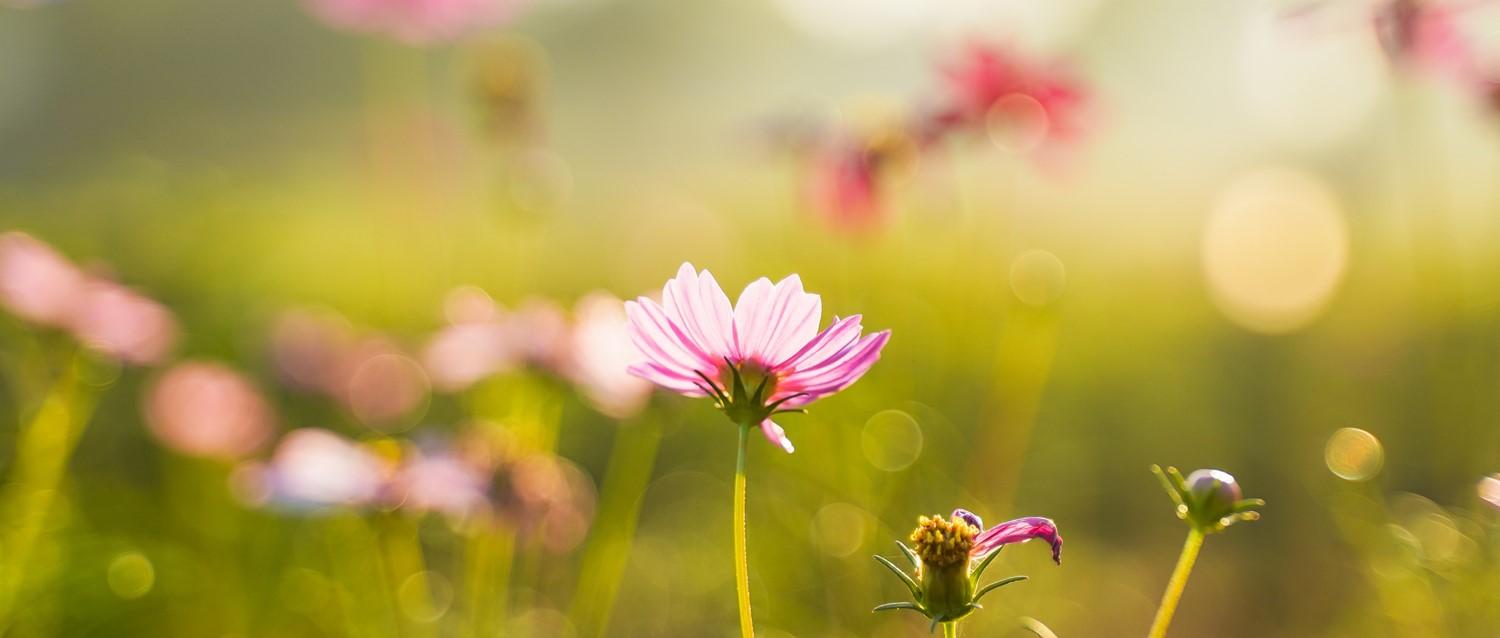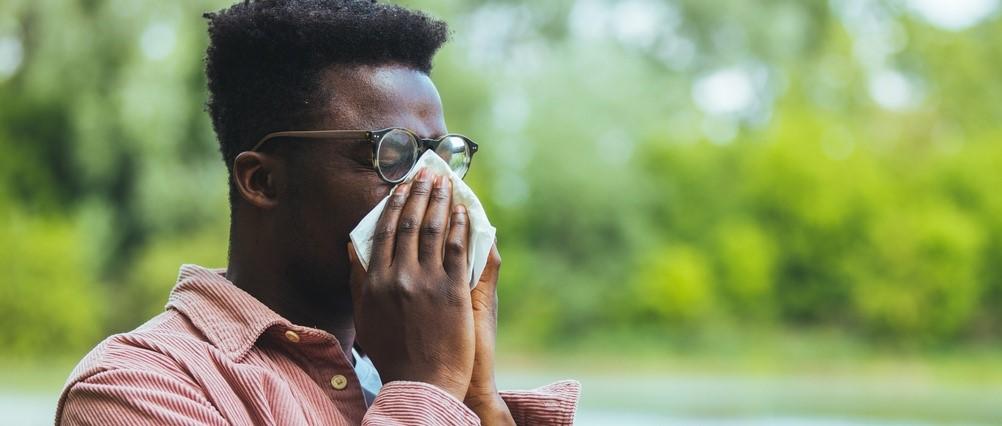
When should I start taking hay fever tablets?
Peer reviewed by Dr Sarah Jarvis MBE, FRCGPLast updated by Amberley DavisLast updated 19 Feb 2024
Meets Patient’s editorial guidelines
- DownloadDownload
- Share
- Language
- Discussion
Is it too early to start taking hay fever tablets? Experts reveal that these work best when started ahead of hay fever season - before the symptoms irritate 1 in 5 of us in spring and summer.
Hay fever tablets are a popular fast-acting treatment option for immediate relief. We explore how they can also be used as a preventative measure before the weather warms, the flowers bloom, and hay fever season kicks in.
In this article:
Continue reading below
Springing into allergy season
Spring brings the promise of brighter, longer days spent among blooming flowers and lush greenery. While this thought might bring a smile to your face, if you have hay fever spring also marks the beginning of allergy season - and its struggles.
What is hay fever?
According to Margaret Kelman, specialist allergy nurse at Allergy UK: "Hay fever is a very common allergy that affects up to 15% of children and 26% of adults in the UK1. It is a seasonal form of allergic rhinitis, where the nose lining becomes inflamed."
This happens in certain people who have an over-sensitivity to pollen - the fine powder made by flowers, plants, or trees that can drift through the air in high quantities during spring and summer. In people with hay fever, pollen is an allergen that triggers an immune system response, where cells lining the nose and eyes release chemicals to fight what the body perceives as a threatening foreign substance.
Continue reading below
Common hay fever symptoms
It is this immune response that causes the symptoms of hay fever that irritate and inconvenience so many people each year. "The main areas affected are the nose, throat, and eyes as these are connected by the same tubes," adds Kelman.
Runny nose.
Itchy nose.
Blocked nose.
Itchy throat.
Itchy eyes.
Watery eyes.
Asthma symptoms such as breathlessness and wheezing - for people with asthma, hay fever season can make symptoms worse.
When does hay fever start?
You may find that you experience hay fever at different times than other people. This is because there are three types of pollen that peak at different times over the summer months. You could be allergic to one, two, or all three pollen types if you're really unlucky.
According to Kelman, these pollen seasons can vary from one year to the next depending on the weather. However, she outlines the general time frames:
Peak pollen times
Tree pollen season - early to late spring (March to May).
Grass pollen season - late spring to late summer (May-July/August) - this is the most common pollen allergy.
Weed pollen season - late summer to early autumn (July to September).
Continue reading below
Why are hay fever tablets important?
Of course, the most effective way to avoid hay fever would be to avoid being outside and around pollen. However, it is almost impossible to avoid pollen totally and no one wants to be cooped up inside for weeks on end.
What you can do is keep track of the pollen count during these months. With TV, radio, and newspaper coverage this is relatively easy to do over spring and summer. You can also check the current pollen forecast. A pollen count of over 50 is considered high.
Hay fever tablets are a common, fast-acting, and highly effective option for treating most hay fever symptoms. Hay fever tablets are antihistamines, working by blocking the chain reaction that happens when your body releases the chemical 'histamine' as part of its symptom-inducing immune response to pollen.
Kelman describes the benefits of hay fever tablets:
Improved quality of life
People with allergic rhinitis such as hay fever report that symptoms cause significant disruptions to their daily lives2. Hay fever tablets can improve outcomes relating to sleep, tiredness, irritability, and a range of practical problems.
Protection against infection
"Untreated allergic rhinitis such as hay fever can also result in the mucus in the nose stagnating. This can lead to infection."
Protection against asthma
"If you have asthma, not treating hay fever can make your condition worse. What's more, hay fever is also a risk factor for developing asthma when pollen is inhaled into the lungs."
More than 40% of patients with allergic rhinitis have asthma3.
Over 80% of people with asthma also suffer from allergic rhinitis3.
When should you start taking hay fever tablets?
While hay fever tablets can be used for immediate symptom relief, they are also an effective pre-treatment. If you are a seasoned hay fever sufferer and know the time of year your symptoms kick in, start taking hay fever tablets early. "Taking hay fever tablets every day for one to two weeks before the season starts is ideal, although for some people this isn’t always easy to predict," says Kelman.
This is because once your allergic reaction to pollen starts, it's harder to stop. A chain reaction occurs where more inflammatory cells are sent to your nose where the pollen lodges, causing your symptoms to become more severe.
By starting antihistamines such as hay fever tablets a few weeks early, you can effectively block this reaction before it begins. For some people, this may prevent symptoms entirely. For others, it at least limits irritation and could help to prevent an asthma flare-up.
When are hay fever tablets the right choice?
"As hay fever tablets are antihistamines, they can both prevent and ease itchiness and runny symptoms in your nose, eyes, and throat. However, they are unable to treat congestion (a blocked and stuffy nose and sinuses). For this, you'll need to use a steroid nasal spray," advises Kelman.
Many steroid nasal sprays are available over-the-counter. They work best when treatment is started ahead of hay fever season - around four weeks in advance - to allow time for the cells to turn off the chemicals that trigger inflammation.
There are several other forms of hay fever medication, including syrups, eye drops, antihistamine sprays and - in very severe cases- injections. "It's always worth asking your pharmacist what they recommend for your symptoms and allergy level, especially if over-the-counter hay fever tablets aren't working within a few days of regular use," adds Kelman.
Hay fever tablet fact sheet
How many hay fever tablets can I take?
Kelman advises taking hay fever tablets once a day until the hay fever season ends. Antihistamines are generally considered relatively safe and taking more than the recommended dose is unlikely to cause you serious harm.
However, limiting intake to once a day may protect you from short-term side effects, including drowsiness, headaches, and dry mouth. Non-sedating antihistamines are approved for long-term use, allowing you to use them throughout the spring and summer as required.
Can you have paracetamol with hay fever tablets?
According to Kelman, it is "perfectly safe" to combine hay fever tablets with paracetamol. This said it's worth speaking to a pharmacist if you're taking other medicines regularly, as mixing certain ones could stop them from working or cause side effects.
Can you take hay fever tablets while pregnant?
"It's always wise to speak to your healthcare provider. Some may recommend non-sedating antihistamines, but while there's no evidence of harm there's also no strong proof that this is completely risk-free during pregnancy4," says Kelman.
Which hay fever tablets make you drowsy?
Drowsy antihistamines, called sedating histamines, can cause 10-50% of people to feel excessively tired and groggy. These include:
Chlorphenamine.
Cinnarizine.
Diphenhydramine.
Hydroxyzine
Kelman recommends non-sedating hay fever tablets because they are much less likely to cause drowsiness5 and in most cases they also provide longer-lasting protection - around 12-16 hours compared to 4-6 hours for sedating antihistamines. These include:
Loratadine.
Cetirizine.
Fexofenadine.
Acrivastine.
As both types carry some risk of drowsiness, the National Institute for Health and Care Excellence (NICE) guidance highlights that4:
Some people's ability to drive may be affected.
Alcohol can increase the drowsiness effects.
Further reading
Patient picks for Hay fever

Allergies, blood and immune system
Why do some people suddenly develop hay fever?
If you're asking "why have I suddenly developed hay fever" this spring, you're not alone. For many, the warmer weather can bring about the unwanted symptoms of hay fever - even if they've never experienced these symptoms in the past.
by Amberley Davis

Allergies, blood and immune system
Hay fever: How to cope with a 'pollen bomb'
With the warmer weather, the tempting smell of barbecues is floating through our windows - but that’s not the only thing in the air. Levels of pollen are always higher in the warmer months - and when we have periods of hot and dry days we may get what is called a pollen bomb.
by Lydia Smith
Continue reading below
Article history
The information on this page is peer reviewed by qualified clinicians.
Next review due: 19 Feb 2027
19 Feb 2024 | Latest version
6 Apr 2022 | Originally published
Authored by:
Amberley Davis

Ask, share, connect.
Browse discussions, ask questions, and share experiences across hundreds of health topics.

Feeling unwell?
Assess your symptoms online for free
Sign up to the Patient newsletter
Your weekly dose of clear, trustworthy health advice - written to help you feel informed, confident and in control.
By subscribing you accept our Privacy Policy. You can unsubscribe at any time. We never sell your data.